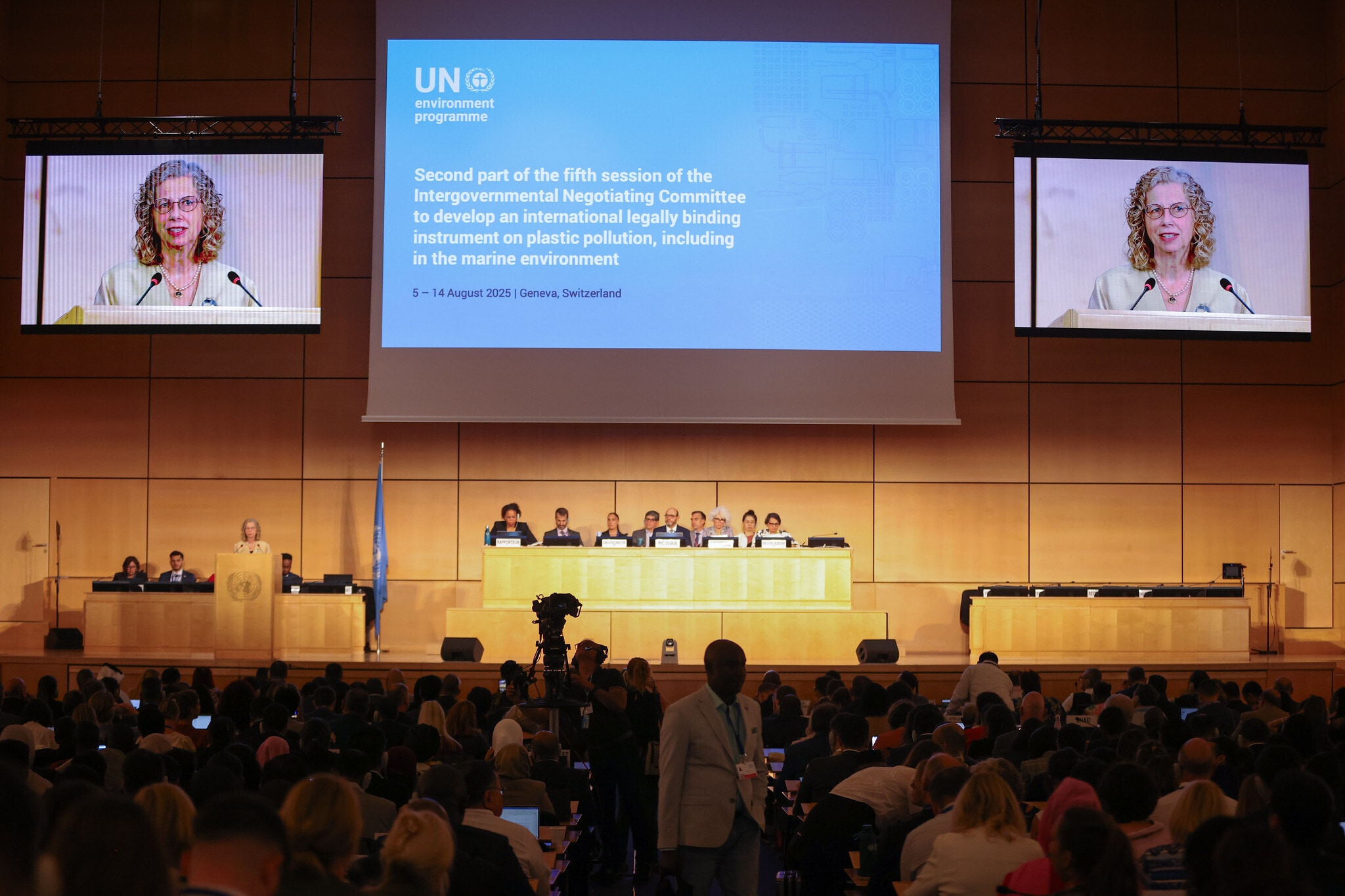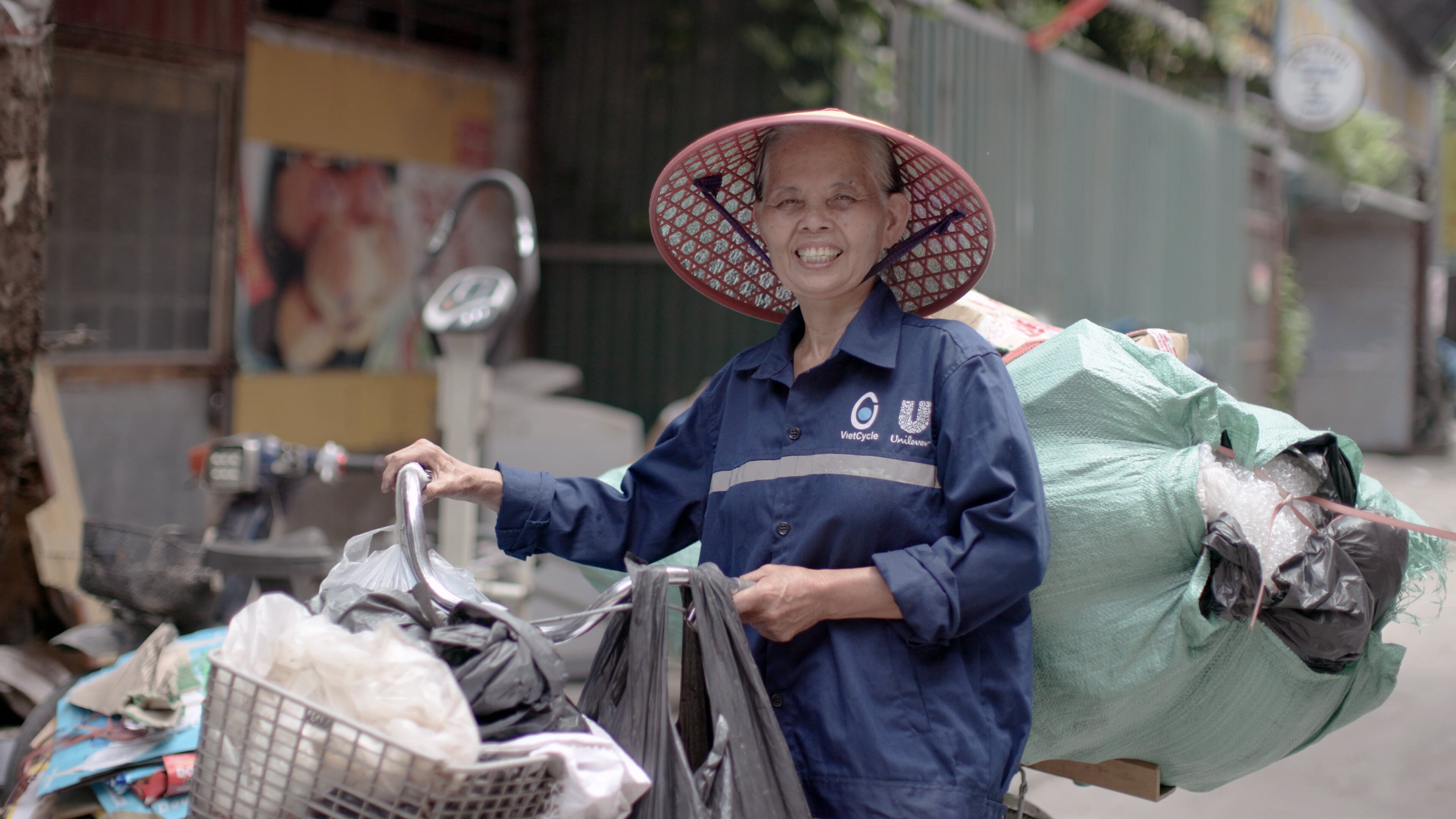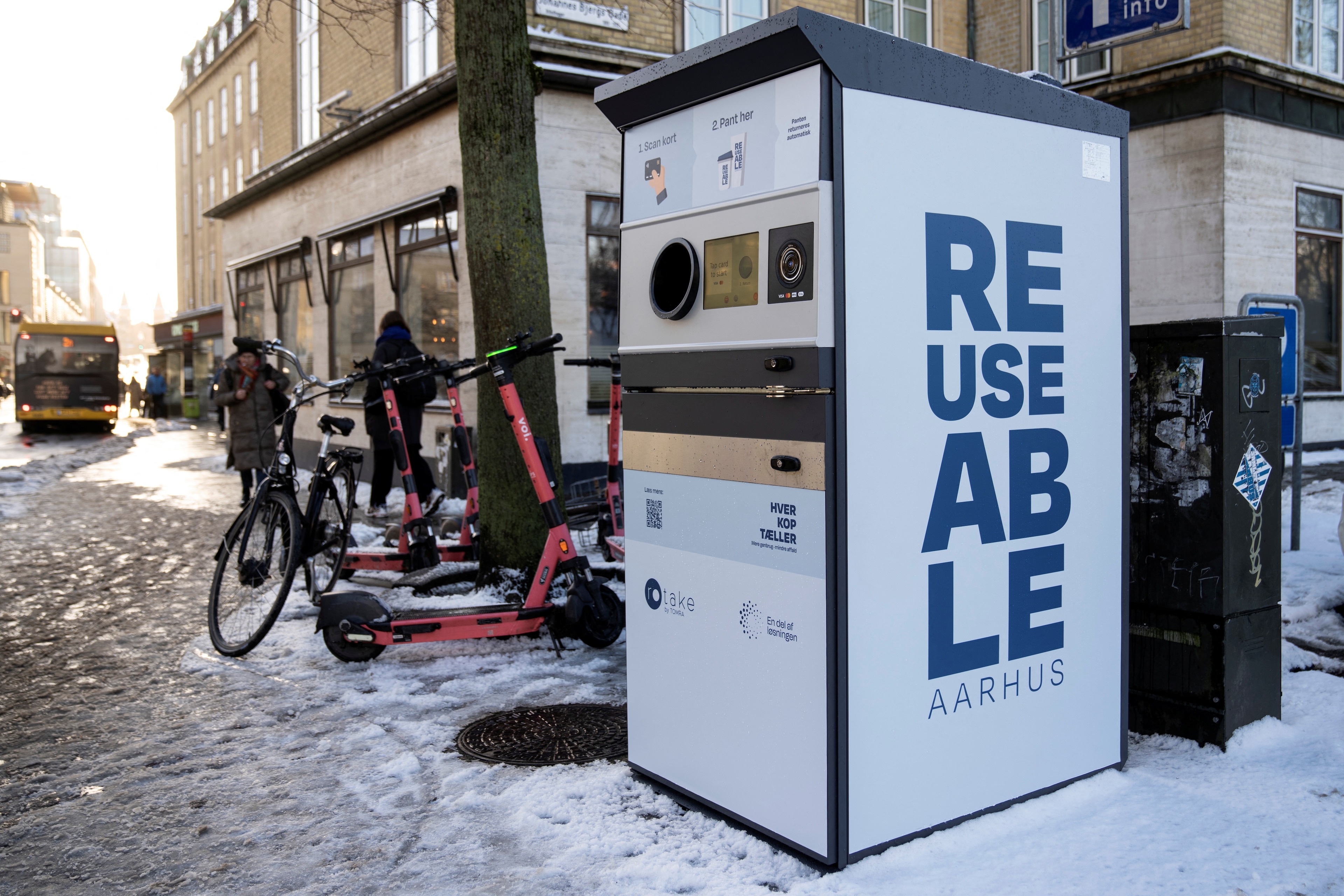8 videos that explain the circular economy

Image: REUTERS/Ueslei Marcelino
Stay up to date:
Circular Economy
You may not have heard of the circular model economy but it has been described as a ‘trillion dollar opportunity’ as well as a way of making life more sustainable.
This video series presents perspectives from leaders across business, academia, policy and civil society as they explore the concept of the circular model and how growth can indeed be ‘green’. This is one of the key issues being explored in our Beyond GDP series, as we look at ways of moving away from a linear 'take-make-dispose' way of living.
Accept our marketing cookies to access this content.
These cookies are currently disabled in your browser.
The global population is set to reach close to 9 billion by 2030. This increase will place huge pressure on resources and mean a change in the way we consume is needed more than ever.
The circular economy means redesigning systems for a more sustainable future. Nothing that is made in a circular economy will become waste.
A change to the global economy brings potential for innovation, job creation and economic development.
The Circular Economy Imperative
Ellen MacArthur, Founder, Ellen MacArthur Foundation, UK
Through her time as a solo off-shore sailor Dame Ellen MacArthur became aware of the importance of utilising resources, and the finite nature of the current, linear economy.
In this video she explains the idea of a circular economy, its benefits and why we must begin to transition towards it.
Accept our marketing cookies to access this content.
These cookies are currently disabled in your browser.
“The circular economy is a fundamentally different economic model, its taking the entire global economy, looking at it through a different lens and saying how can we valorise our economy to a higher level?”
Business Model Innovation
Frans van Houten, President and Chief Executive Officer, Royal Philips, Netherlands.
Frans van Houten believes the circular economy presents a significant opportunity for business model innovation.
He explains what this business model innovation would look like, and the economic potential it would bring.
Accept our marketing cookies to access this content.
These cookies are currently disabled in your browser.
“In circular economy business models I would like products to come back to me as the original designer and manufacturer.”
Design Innovation
William McDonough, Consulting Professor of Civil and Environmental Engineering, Stanford University, USA
William McDonough is an architect, designer and thought leader. In this video he discusses design innovation, a core aspect of a circular economy.
“The circular economy is an economic system that is an innovation engine that puts the re back into resources. It allows for continuous benefit to be provided to all generations by the reuse of things.”
Accept our marketing cookies to access this content.
These cookies are currently disabled in your browser.
Systems and Network Innovation
Patrick Wiedemann, Chief Executive Officer, Reverse Logistics Group, Germany
In this video Patrick Wiedemann discusses how the global economy can use the ‘reverse cycle’ to close material loops.
He shares his perspective on reverse logistics, and the need for supply chain innovation.
Accept our marketing cookies to access this content.
These cookies are currently disabled in your browser.
“Changing business models…will create a total new dynamic out in the market and create an enormous need for reverse processes.”
Upcycling
Arthur Huang, Founder and Chief Executive Officer, Miniwiz, Chinese Taipei
Miniwiz, founded by Arthur Huang, is a closed-loop material innovation company. The business thrives on ‘upcycling’ – the reusing of products or materials to create a product of higher quality or value than the original – Huang explains more in this video.
Accept our marketing cookies to access this content.
These cookies are currently disabled in your browser.
Circular Economy and Policy
Janex Potocnik, Co-chair, UNEP International Resource Panel, France
Janez Potocnik has played a large role in policymaking on natural resources through his current role in the UNEP International Resource Panel, and in his prior role as the Commissioner for Environment for the European Commission.
In this video he discusses policy for a circular economy and the importance of addressing problems that are preventing the transition.
Accept our marketing cookies to access this content.
These cookies are currently disabled in your browser.
The Power of Consumers
Mike Barry, Director, Sustainable Business, Marks & Spencer, UK
The role of consumers will be vital in the transition to the circular economy. Mike Barry explains the power consumers have and how they will benefit from this new economic model.
“Ultimately the consumer is vital to the circular economy, they’re the ones driving the consumption of trillions of individual items around the planet.”
Accept our marketing cookies to access this content.
These cookies are currently disabled in your browser.
He notes that we have to find a different way of servicing the needs of consumers, and ultimately encouraging the consumers to join businesses in the journey through showing them the benefits of a circular economy.
For more about the Circular Economy, visit our World Economic Forum Circular Economy Initiative page.
Don't miss any update on this topic
Create a free account and access your personalized content collection with our latest publications and analyses.
License and Republishing
World Economic Forum articles may be republished in accordance with the Creative Commons Attribution-NonCommercial-NoDerivatives 4.0 International Public License, and in accordance with our Terms of Use.
The views expressed in this article are those of the author alone and not the World Economic Forum.
Forum Stories newsletter
Bringing you weekly curated insights and analysis on the global issues that matter.
More on Circular EconomySee all
Tom Crowfoot
August 20, 2025
Kaiser Kuo and Kateryna Gordiychuk
August 15, 2025
Henrik Hvid Jensen
August 7, 2025






